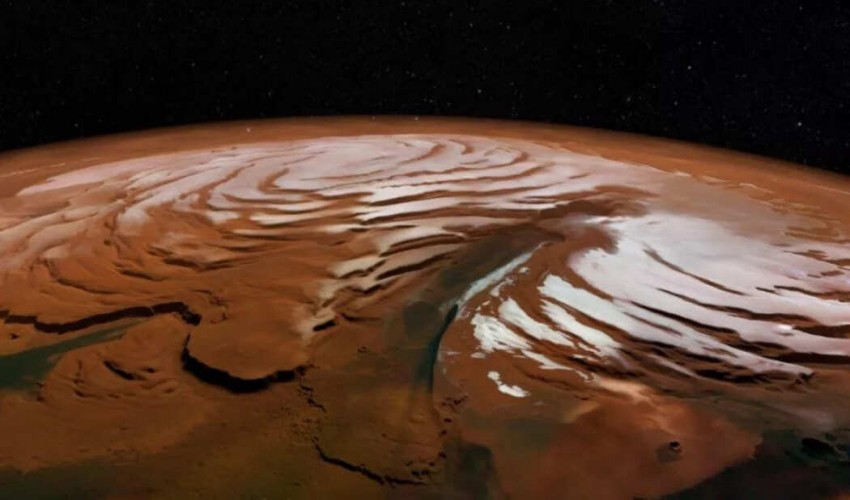Environment Science and technology
8
It's possible that Mars' buried "lake" is just layers of ice and rock.
- Rating
- planetary
- scientists
- discovery
- liquid
- waves
A study finds that liquid water is not the only thing that could cause strange radar signals.
"Follow the water" has been the scientists' motto for a long time when they are looking for life beyond Earth. After all, our watery planet is the only place in the universe where life is known to have started. But researchers report in Nature Astronomy on September 26 that there is now more evidence that a possible discovery of liquid water on Mars might not be as solid as they thought.
But since then, some researchers have said that those discoveries might not stand up to scrutiny. Researchers saw strong radar signals in 2021. One group said that the strong radar signals might have been caused by clay minerals and frozen brines instead of liquid water (SN: 7/16/21). Spacecraft in orbit around Mars send radio waves toward the Red Planet and measure the time and strength of the waves that bounce back to figure out what's below the surface of Mars.
Now, another group has shown that layers of rock and ice can make many of the same radar signals that were once thought to come from water. Dan Lalich, a planetary scientist at Cornell University, and his colleagues figured out how flat layers of bedrock, water ice, and carbon dioxide ice, all of which are known to be common on Mars, reflect radio waves. Lalich says, "It was a pretty simple analysis."
Researchers found that they could make some of the radar signals that were thought to be caused by liquid water but were too strong to be caused by water. Lalich says that when the layers of rock and ice are a certain thickness, the radar signals from the different layers add up. This makes the signal stronger, which can then be picked up by the instruments on a spacecraft. He says that these instruments can't always tell the difference between a radio wave that comes from a single layer and one that comes from more than one layer. "On the radar, they look like one reflection."
Lalich and his colleagues agree that these results don't mean that there isn't liquid water on Mars. He says, "This is just to show that there are other choices."
Aditya Khuller, a planetary scientist at Arizona State University in Tempe who did not take part in the study, says that the new finding is "a plausible scenario." But until scientists get a lot more information from Mars, it will be hard to know for sure if there is liquid water there, says Khuller. "At this point, it's important to keep an open mind."
CITATIONS
D.E. Lalich et al. Explaining bright radar reflections below the south pole of Mars without liquid water. Nature Astronomy. Published online September 26, 2022. doi: 10.1038/s41550-022-01775-z.
Leave a Reply
Your email address will not be published. Required fields are marked *


